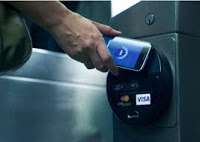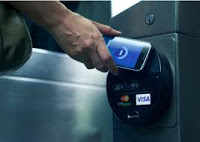More specifically, the two companies will work together to create a proposal that will be offered to the entire Vodafone customer base of 398 million users, in more than 30 countries, on five continents. The service will initially be launched in Germany, the Netherlands, Spain, Turkey and the United Kingdom, starting next financial year. Other countries will follow in Vodafone's global portfolio.
With this collaboration, consumers will gradually be able to manage their day-to-day transactions with a simple smartphone move to points of sale. They can simply walk through their cellphone in front of a payment terminal and make simple daily purchases such as buying buses and trains, buying newspapers, magazines or even coffee. Consumers will also be able to make valuable purchases safely using a code.
More generally, as executives from technology and financial institutions point out, day-to-day consumer transactions in the near future are estimated to be increasingly driven by mobile phones and collaborations they will develop with card issuers. This will gradually reduce the use of cash with positive results in both the high costs of handling and in general the management of banknotes and coins, as well as in issues related to the fight against tax evasion and the black economy in general. It is also characteristic and confirmed by relevant studies that in countries where payments are made using plastic money and new technologies, the magnitude of the black economy and tax evasion is considerably smaller than countries where transactions are mainly cash-based.
It is estimated that there will be a reduction in the use of cash in daily transactions in Greece with the gradual penetration into the market of contactless payments.
The so-called "contactless transactions" allow consumers to use their cards for small purchases worth up to 15 or 20 euros, instead of using coins and banknotes. In less than a second, the chip card is charged for a daily transaction, such as buying coffee, while at the same time, after agreements with organizations, it can act as a "ticket" for access to the subway, buses (in England will be adopted from April), even for the payment of taxis.
As recently announced by Vice President and Chief Executive of Visa Europe, Nikos Campanopoulos needs investment from banks to change POS and launch new cards, the environment may not help us, but Visa is ready to bring this service to Greece since March. In this context, it has already contacted Greek financial institutions in order to reach the relevant agreements. The value of intact transactions in Europe tripled 2011 and estimates 2012 will release around 50 million unpaid payment cards.
Card operation: Holders of these cards will keep the plastic close to the terminal device and the transaction will be automatically charged, without the need to pass or insert the card into the machine (POS). With contactless payments, the cardholder does not let go of the card, so it is safer, and he / she will be required to enter his / her security code (PIN) periodically, to confirm that the card is in the hands of its legal holder.
Source: Proho.gr

